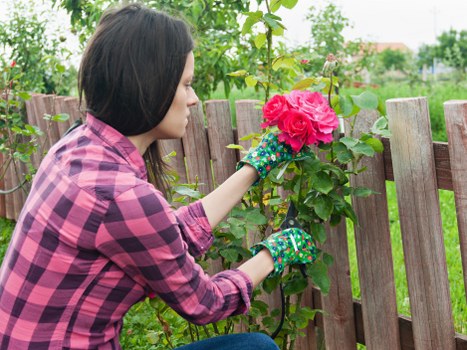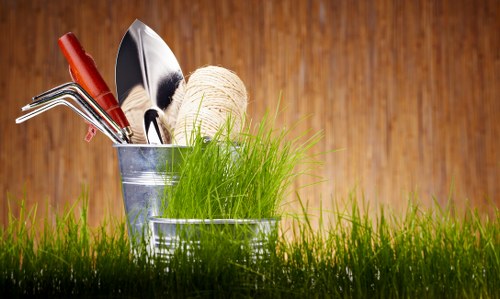Driveway Algae Removal St Albans

Driveway algae can make your property look unkempt and can even damage the surface over time. In St Albans, where the climate is conducive to algae growth, it's essential to address this issue promptly. Effective algae removal not only enhances the aesthetic appeal of your driveway but also prolongs its lifespan.
Understanding the best methods for driveway algae removal in St Albans is crucial. Whether you prefer DIY solutions or professional services, knowing the right techniques can save you time and effort.
This article explores various strategies for removing algae from your driveway, focusing on both chemical and natural remedies. We'll also discuss preventive measures to keep your driveway algae-free all year round.

Understanding Algae Growth on Driveways
Algae thrive in damp, shaded environments, making driveways an ideal spot for their growth. Rainfall and high humidity levels in St Albans contribute to the proliferation of algae, especially during the colder months.
Common types of driveway algae include green algae, moss, and lichens. While green algae give the driveway a slippery appearance, moss and lichens can cause more significant structural issues if left untreated.
Identifying the type of algae is the first step in determining the appropriate removal method. Each type may require a different approach to ensure effective eradication.

DIY Algae Removal Methods
Using Chemical Cleaners
Chemical cleaners are a popular choice for removing algae from driveways. These products are readily available and easy to use, making them a convenient option for many homeowners.
- Sodium Hypochlorite: Effective in killing algae quickly.
- Muriatic Acid: Powerful but requires caution during application.
- Eco-Friendly Cleaners: Safe for the environment and your driveway surface.
When using chemical cleaners, it's essential to follow the manufacturer's instructions carefully to avoid damage to your driveway and surrounding vegetation.
Always wear protective gear, such as gloves and goggles, when handling chemical solutions to ensure your safety.

Natural Remedies for Algae Removal
If you prefer environmentally friendly options, natural remedies can be effective in removing driveway algae. These methods are safe for your driveway and the surrounding environment.
- Baking Soda: Sprinkle baking soda on the affected area and scrub with a brush.
- Vinegar Solution: Mix vinegar with water and apply to the algae growth.
- Boiling Water: Pour boiling water directly onto the algae to kill it.
Natural remedies may require more time and effort compared to chemical cleaners, but they are a safer alternative for eco-conscious homeowners.
Regular maintenance using these methods can help prevent the recurrence of algae on your driveway.

Professional Algae Removal Services in St Albans
For those who prefer a hassle-free solution, professional algae removal services are available in St Albans. These experts use advanced techniques and specialized equipment to ensure thorough algae elimination.
Professional services often include pressure washing, sealing, and applying anti-algae treatments to prevent future growth. Hiring a professional can save you time and ensure the job is done correctly.
Benefits of Hiring Professionals
- Expertise: Professionals have the knowledge and experience to handle various types of algae.
- Efficiency: They can complete the job quickly and effectively.
- Long-Term Solutions: Professionals provide solutions that prevent future algae growth.
Investing in professional algae removal services can enhance the longevity and appearance of your driveway, adding value to your property.
Preventive Measures to Keep Your Driveway Algae-Free
Prevention is key to maintaining a clean and algae-free driveway. Implementing the following measures can help minimize algae growth:
- Proper Drainage: Ensure that water does not pool on your driveway.
- Regular Cleaning: Sweep and wash your driveway regularly to remove debris.
- Seal Your Driveway: Applying a sealant can prevent moisture from penetrating the surface.
- Trim Nearby Vegetation: Reduce shade and moisture by trimming plants around your driveway.
By adopting these preventive strategies, you can significantly reduce the chances of algae developing on your driveway.
Local Insights: Algae Removal in St Albans Surrounding Areas
St Albans is surrounded by several areas where driveway algae removal services are in high demand. Understanding the unique needs of each area can help you choose the right service provider.
- Watford: Just a few miles from St Albans, Watford experiences similar weather conditions, making algae removal essential.
- Harpenden: Known for its lush greenery, Harpenden requires regular driveway maintenance.
- Hatfield: The proximity to the reservoir increases moisture levels, promoting algae growth.
- Bricket Wood: With its residential areas, Bricket Wood benefits from professional algae removal services.
- St Stephen: Driveways in St Stephen often face algae challenges due to shaded areas.
- St Michael: Similar to St Stephen, St Michael's driveways need regular cleaning.
- St Thomas: Driveway algae removal is crucial in St Thomas to maintain property aesthetics.
- Sandridge: The flat terrain of Sandridge leads to water accumulation on driveways.
- Pekeshill: Algae persistence in Pekeshill makes professional removal services beneficial.
- Knebworth: Maintain the beauty of Knebworth driveways with regular algae cleaning.
Choosing the Right Algae Removal Service in St Albans
Selecting the best algae removal service in St Albans involves considering factors such as experience, customer reviews, and the methods used. Look for companies that offer comprehensive services and have a track record of satisfied customers.
It's also important to choose a service that uses environmentally friendly products, especially if you have nearby vegetation or pets. Transparent pricing and good customer support are additional factors to consider when making your decision.
Conclusion
Driveway algae can be a persistent problem in St Albans, but with the right approach, you can effectively remove and prevent its growth. Whether you choose DIY methods or professional services, maintaining your driveway will enhance your property's curb appeal and longevity.
Frequently Asked Questions
1. How often should I clean my driveway to prevent algae growth?
It's recommended to clean your driveway at least twice a year. Regular maintenance helps prevent algae from establishing and spreading.
2. Are chemical cleaners safe for the environment?
Some chemical cleaners can be harmful to the environment. Opting for eco-friendly or natural cleaners is a safer choice for your driveway and surroundings.
3. Can algae damage my driveway permanently?
Yes, prolonged algae growth can cause surface degradation, making the driveway slippery and potentially leading to structural damage over time.
4. Is professional algae removal expensive?
The cost of professional algae removal varies based on the driveway size and the extent of the algae growth. However, the investment is worthwhile for effective and long-lasting results.
5. What preventive measures can I take to avoid algae in the future?
Ensuring proper drainage, regular cleaning, sealing your driveway, and trimming surrounding vegetation are effective preventive measures to keep algae at bay.


